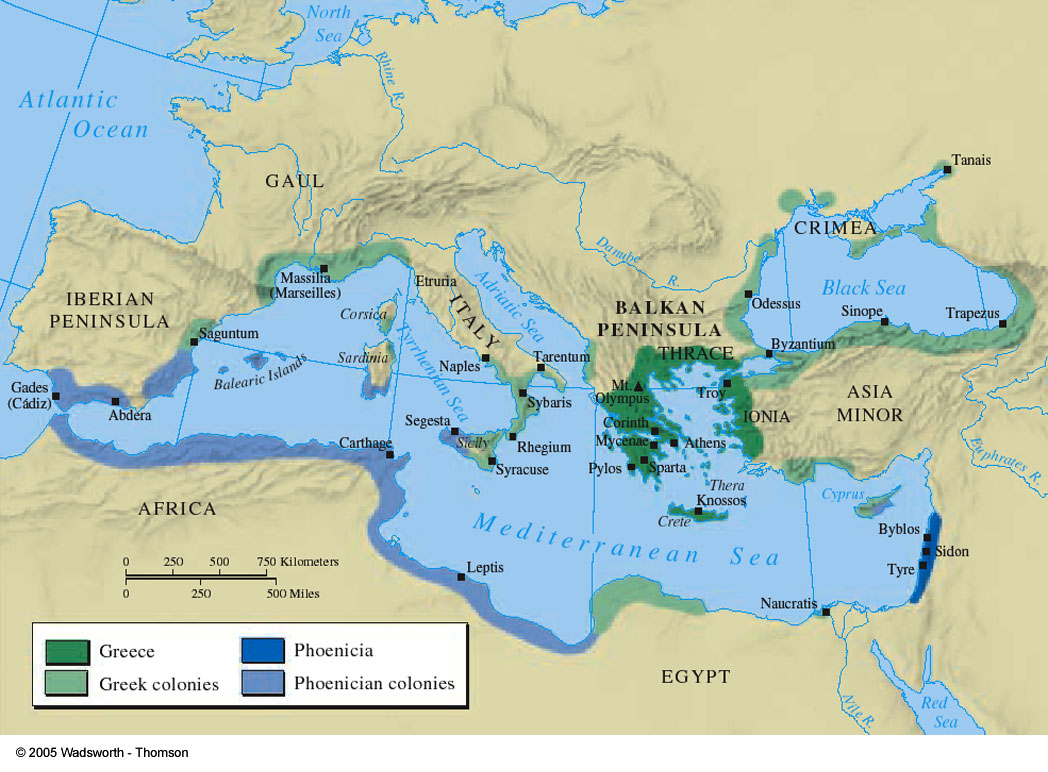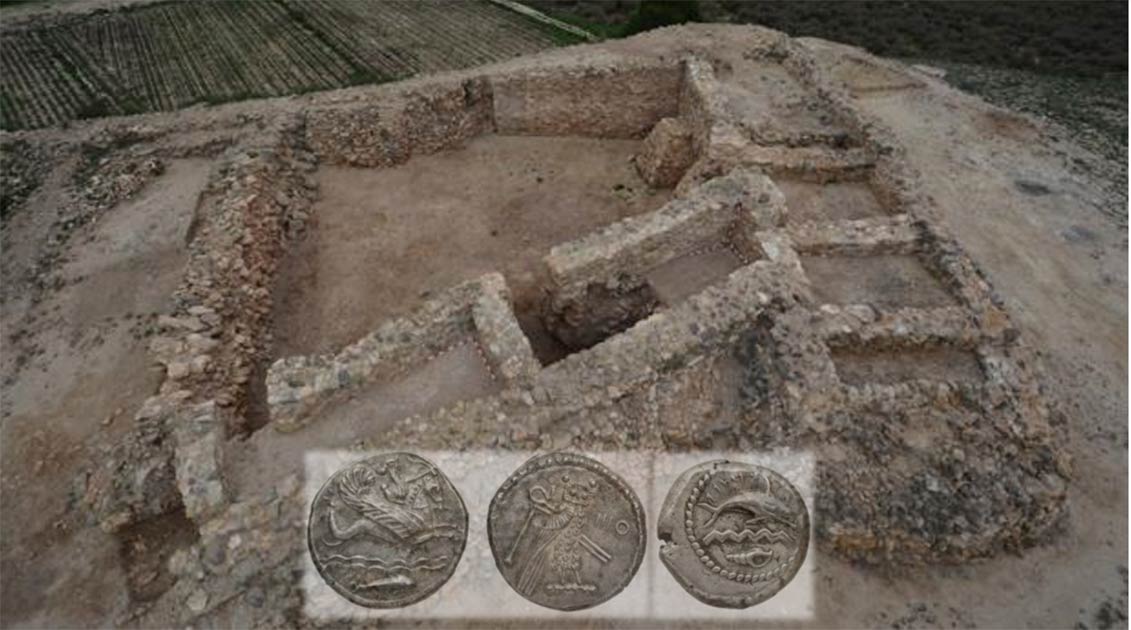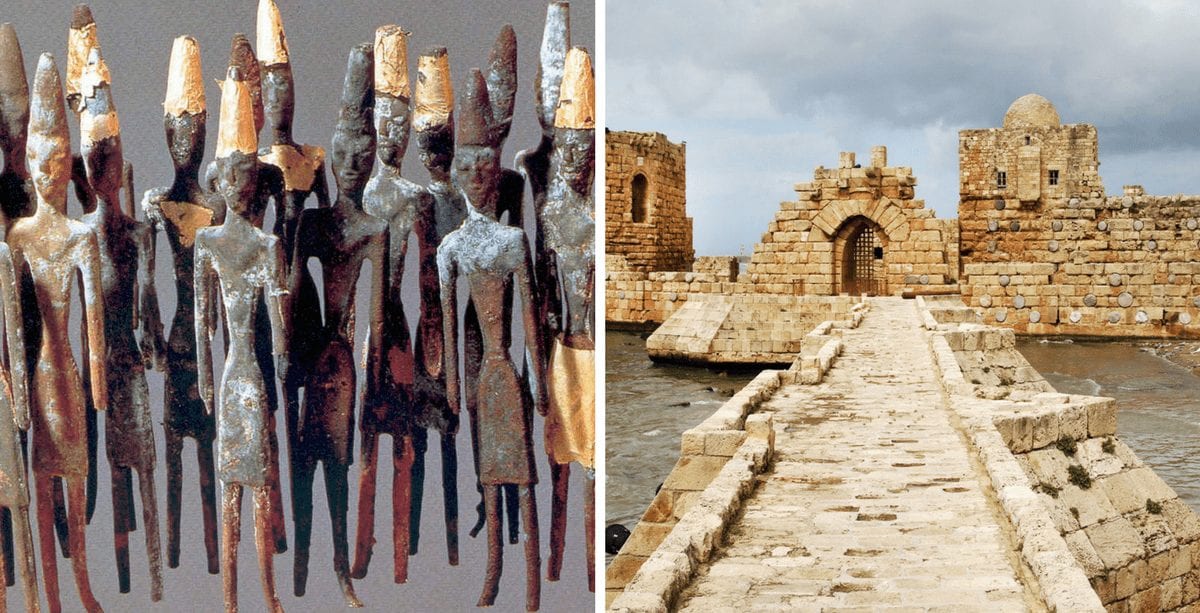The latest study led by the Wellcome Trust Sanger Institute in England and in collaboration with universities from around the world, including Lebanon, Switzerland, and New Zealand, proves that most of the Lebanese ancestry is Phoenician.
In fact, they argue that the links go further back to the Canaanites, the historic and biblical people – who include the Phoenician people.
The study shows non-stop continuity as well as some mixture in the last 5000 years in Levantine history, from the ancient Canaanites to the present-day Lebanese people.
In fact, the study found the Canaanite and Phoenician ancestry was not only present but widespread in the region and shared among urban populations inhabiting the coast as well as inland populations.
The study shows that present-day Lebanese derive most of their ancestry from a Canaanite-related population – which are the Phoenicians.
Related:
- Ancient Phoenician castle is being restored in Batroun
- 15 Interesting facts about Phoenicians
- Phoenician cities that still exist today in Lebanon
The Details
The study has a total of 16 contributors, 4 of whom are Lebanese:
- Marc Haber – The Wellcome Trust Sanger Institute, United Kingdom.
- Claude Doumet-Serhal – The Sidon excavation, Saida, Lebanon.
- Christiana Scheib – Department of Archaeology and Anthropology, University of Cambridge, United Kindom.
- Yali Xue – The Wellcome Trust Sanger Institute, United Kingdom.
- Petr Danecek – The Wellcome Trust Sanger Institute, United Kingdom.
- Massimo Mezzavilla – The Wellcome Trust Sanger Institute, United Kingdom.
- Sonia Youhanna – Institute of Physiology, University of Zurich, Switzerland.
- Rui Martiniano – The Wellcome Trust Sanger Institute, United Kingdom.
- Javier Prado-Martinez – The Wellcome Trust Sanger Institute, United Kingdom.
- Michal Szpak – The Wellcome Trust Sanger Institute, United Kingdom.
- Elizabeth Matisoo-Smith – Department of Anatomy, University of Otago, New Zealand
- Holger Schutkowski – Bournemouth University, United Kindom.
- Richard Mikulski – Bournemouth University, United Kindom.
- Pierre Zalloua – Lebanese American University, Beirut, Lebanon; Harvard T.H. Chan School of Public Health, USA.
- Toomas Kivisild – Department of Archaeology and Anthropology, University of Cambridge, United Kindom.
- Chris Tyler-Smith – The Wellcome Trust Sanger Institute, United Kingdom.
The abstract states that despite the Canaanites inhabiting the Levant region (Lebanon, Cyprus, Egypt, Iraq, Palestine, Israel, Jordan, Syria, and Turkey) during the Bronze Age and establishing an influential culture, they left few surviving textual records.

As a result, their origin and relationship to ancient and present-day populations remain unclear.
So in this study, they sequenced five whole-genomes from ~3,700-year-old individuals from the city of Sidon (Saida) from the excavation.
They also sequenced the genomes of 99 individuals from present-day Lebanon to catalog the modern Levantine genetic diversity.
The study found that the Canaanite/Phoenician ancestry was widespread in the region and shared among urban populations inhabiting the coast as well as inland populations.

The Canaanite ancestry was found to be a mix of local populations, who lived in the Levant for at least the past 10,000 years, and eastern migrants who arrived in the Levant around 5,000 years ago, possibly from Mesopotamia when an aridification event happened. The region became dry and the agricultural plains were abandoned.
The study shows that present-day Lebanese derive most of their ancestry from a Canaanite-related population (Phoenicians).
This implies substantial genetic continuity in the Levant since at least the Bronze Age (so for at least 6000 years).
What’s interesting is that they also found Eurasian ancestry in the Lebanese people – which was not present during the Bronze Age or earlier Levantines.
They believe this Eurasian ancestry arrived in the area around 3,750-2,170 years ago during a period of successive conquests by distant populations, like the Persians and Macedonians.
So are Lebanese Phoenicians? Yes. In fact, our ancestry is even older than that. Studying genes can bring out some interesting revelations.

Here are some of the things we found particularly interesting in the study:
The results support substantial local population continuity and suggest that several present-day genetic disorders might stem from risk alleles that were already present in the Bronze Age population.
The traits of the past people in Sidon and the present-day Lebanese had comparable skin, hair, and eye colors (in general: light intermediate skin pigmentation, brown eyes, and dark hair), but with the past people in Sidon having darker skin than Lebanese today.
They compared the past people of Sidon and 3 individuals from the Early Bronze Age Jordan (which were found in a cave in Ain Ghazal, Jordan). They found similarities in the genes.
This suggests that people from the highly differentiated urban culture on the Levant coast and inland people with different modes of subsistence were still genetically similar.
This supports previous reports that different cultural groups who inhabited the Levant during the Bronze age each achieved their own cultural identities but all shared common genetic and ethnic roots with the Canaanites.
These groups include the Ammonites, Moabites, Israelites, and Phoenicians.
This study allowed them to begin reconstructing a genetic history of the Levantine people.
They plan to also examine the admixture between local populations and the eastern migrants.
Canaanites are ancestral to Lebanese from all religions. So we can’t say that Christians are Phoenicians and Muslims are Arabs. Lebanese from all religions are closer to each other than to other groups.
For example, Lebanese Sunnis are closer to Lebanese Christians than to Saudi Sunnis.

















